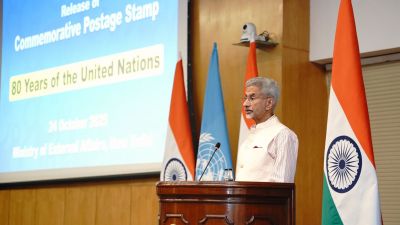FIs not to sell their stake in BSES
MUMBAI, JUNE 3: Financial Institutions, led by the Unit Trust of India (UTI) have decided not to sell their stake in power major BSES Ltd ...

MUMBAI, JUNE 3: Financial Institutions, led by the Unit Trust of India (UTI) have decided not to sell their stake in power major BSES Ltd in response to Reliance Industries Ltd’s open offer. “We would like to maintain our stake at 26 per cent,” the UTI Chairman P Subramanyam said here today.
He added that the open offer by RIL at Rs 234 per share was much below the current market price of BSES, Subramanyam said here today.
RIL had made an open offer to up its stake from the present 14.82 to 35 per cent. When RIL made the open offer the price was around Rs 255 and on Friday the scrip had closed at Rs 281.
"It will likely be a joint decision of the institutions," FIs sources had said earlier. The 35 per cent shareholding in BSES held almost equally between the Life Insurance Corporation (LIC), General Insurance Corporation (GIC) and the Unit Trust of India (UTI) is expected to be the determining factor in the move by petrochemicals maker Reliance to hike its stake in professionally managed BSES to 35 per cent from the current 15 per cent.
The Reliance move, long expected, is expected to give a thrust to Reliance’s plans in the power sector, especially in the distribution side, and its initiatives in the new economy areas.
BSES generates and distributes power to Mumbai where it has a customer base of over 2.7 million. It is also an Internet service provider and has plans to use its electricity distribution infrastructure to grow its Internet business.
BSES chairman and managing director R V Shahi had said that the board of directors of the firm will not be making any recommendation to the shareholders about Reliance’s bid but was confident that irrespective of who the owners were it would continue to be run professionally. Reliance also said it would retain the present management structure of BSES if it won the bid.
Analysts said the BSES bid could be one of several big acquisitions planned by Reliance which had cash reserves of over Rs 3,000 crore after its expansion programme was completed this year.
After months of speculations, RIL had announced on May 19 that it was acquiring BSES which has a market capitilisation of roughly Rs 3,500 crore. RIL claimed that the acquisition would result in the creation of new assets in the power sector apart from the pooling of construction and management strengths. Moreover, if the bid is successful, its power capacity will go up to 8,000 mw from the estimated 6000 mw. BSES’ total capacity is around 2000 mw and it holds the exclusive license for distribution of power in Mumbai and for a major part of Orissa.
RIL’s plan to gain contrlloing stake in BSES will also help in leveraging the synergies in telecom and internet ventures. BSES has recently started operations as an internet service provider and compelted the laying of an opical fibre back bone in Mumbai which is in sync with RIL’s stated strategy for telecom and internet sectors.





- 01
- 02
- 03
- 04
- 05


























